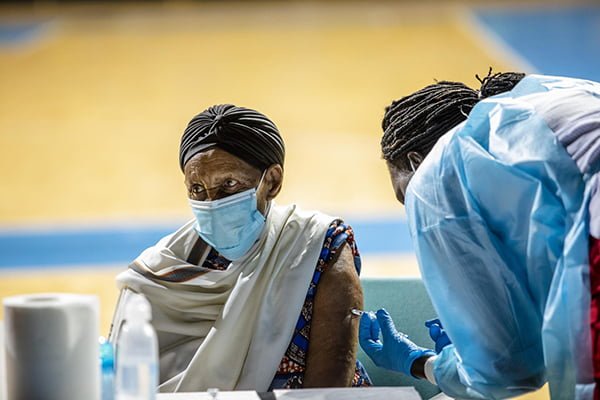
The state of health information in the media is far from ideal, especially when it comes to scientific information. This issue has prompted many questions and concerns, and there are several reasons behind it.According to Moussa Seck, the COVID-19 pandemic has exposed the “fragility of our healthcare systems.” This has led to major divergences within the scientific community and a disappointing result in the vaccine campaign. These lessons from the pandemic have sparked discussions about the role of scientific and health information in the media. As an online news outlet, Ouestaf is also interested in this topic and has organized a panel of experts to explore it further. One of the panelists, Dr. Amadou Sow, believes that there is room for improvement in how health information is presented in the media. He argues that instead of just talking about diseases and symptoms, journalists should also focus on encouraging people to seek help from medical professionals. He emphasizes the need for clear and concise reporting, stating that there is no need for sensationalism when it comes to medical issues.Dr. Sow also highlights the lack of information on healthcare systems and organization in the media. He questions whether people are aware of services such as emergency care and the reason for its availability. The specialist in forensic medicine believes that these crucial aspects are not often discussed. He also raises concerns about how medical disputes are covered in the media, stating that they are usually sensationalized instead of being objectively reported.When it comes to reporting on scientific information, Dr. Sow believes that many journalists do not have the necessary expertise. He suggests that specialization in certain fields should be emphasized during journalism education. This will give journalists the tools to cover scientific topics more accurately and effectively. Yacine Ndiaye, who represented the Institute for Research for Development (IRD) on the panel, suggested adding specialized science journalism courses in journalism schools. It can also provide opportunities for journalists to learn about research and collaborate with scientists. The IRD has been organizing training sessions to help bridge the gap between media and science, but still, more needs to be done.The panel also addressed the issue of scientists presenting their work on TV and media platforms. Dr. Wone argues that researchers have an obligation to share their findings with communities. He believes that the main reason why non-scientists are sometimes invited to speak in place of experts is that they are not taking the initiative to reach out to the media. In terms of the complexities in scientific terminology that may hinder journalists from effectively disseminating information, Dr. Wone suggests that the responsibility lies with the researchers to simplify their language for better understanding by the media. He argues that if scientists do not take the effort to communicate their findings clearly, other non-experts will take their place in the media.In conclusion, the panel discussion highlights the need for better collaboration between the media and the scientific community. Scientists must make an effort to share their findings and communicate with the public. There is also a need for journalism schools to integrate a specialized curriculum to equip journalists with the skills to report on science accurately. Ultimately, ensuring accurate and accessible reporting on scientific information will enable the public to make informed decisions about their health and wellbeing
—-
Brought to you by Senegal English Media Group


